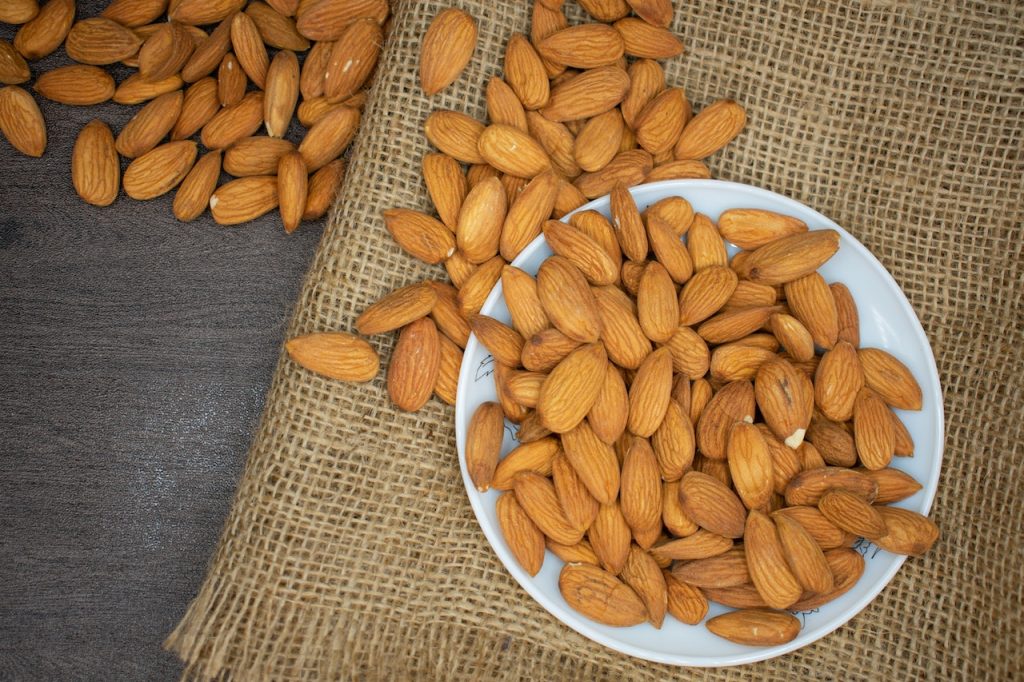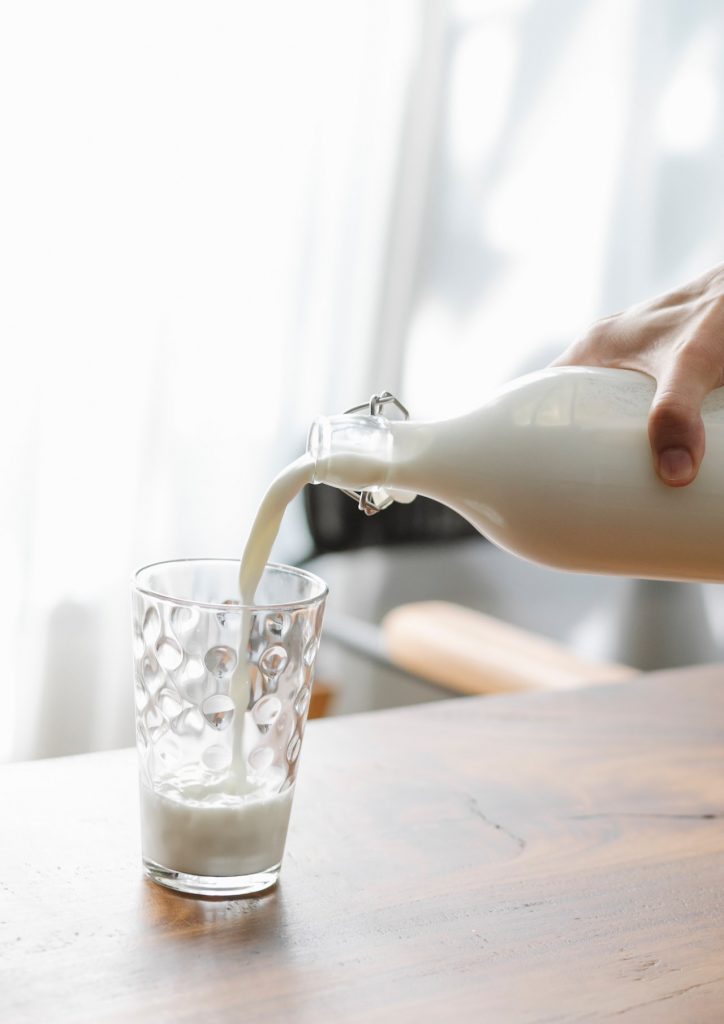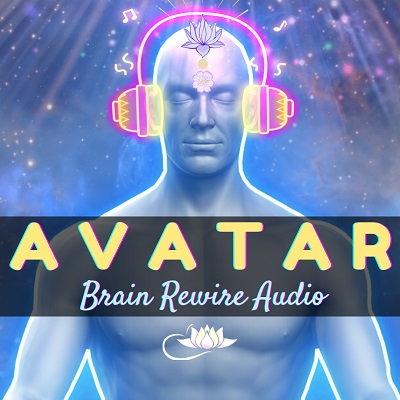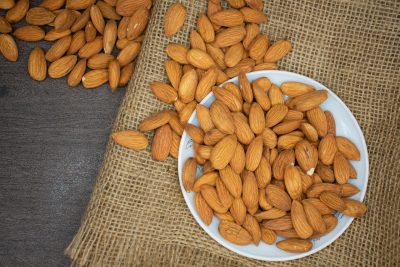After the pandemic, everyone has seen the importance of good health. Therefore everyone is more focused on their health than they were before. They are substituting their daily diet with proteins, nutrients, and multivitamins, like level 1 protein bar.

We all probably already know about proteins but let’s discuss them in more depth. Proteins are one of the three major macro-nutrients that are included in our daily diet. Even there are several products that are designed to provide a normal level of protein in your diet like level 1 protein bar, protein powder etc.
If we talk about Protein, it is one of the most essential macronutrients that is required by our body. Most of us think we need a great amount of protein in our daily diet but we can be wrong about this.
So we have designed this article in such a way that you will fully understand the fundamentals of protein in your life and will be able to use this information to take your daily diet to a whole new Level. Let’s get started then……
What exactly is protein?

Proteins are basically the building blocks of our life and every single cell in our body is made up of protein i.e. bones, teeth, hair, and skin. Proteins are responsible for the creation of enzymes that provides the power that is essential for many of the chemical reactions to occur in our body. In fact, protein also provides the energy to haemoglobin to carry out its function i.e. carry oxygen to every cell in our body.
Large, complex molecules known as proteins play a variety of vital functions in the body. They are crucial for the structure, function, and control of the body’s tissues and organs and carry out the majority of their job inside cells.
A protein molecule is significantly larger than a sugar or salt molecule because it is made up of several amino acids that are linked together to create extended chains, much like beads on a string. About 20 distinct amino acids are found in proteins on a natural level. Proteins with similar functions share a similar amino acid sequence and structure. The characteristics of the amino acids that make up proteins can be attributed to recognised connections between structure and function, even though it is not yet possible to explain all of a protein’s functions from its amino acid composition.
How it is produced?

In most cases, genes are responsible for the creation of proteins in our bodies. Genes also contain essential information required to produce protein. Within each cell, the process from gene to protein is sophisticated and closely controlled. Transcription and translation are the two main procedures. Gene expression is the result of transcription and translation working together.
The data held in a gene’s DNA is translated to an analogous molecule called RNA (ribonucleic acid) in the nucleus of the cell during transcription. Although both RNA and DNA are composed of a series of building units known as nucleotides, they differ slightly in terms of their chemical composition. Because it transports the information, or message, from the DNA outside of the nucleus and into the cytoplasm, the type of RNA that includes the instructions for building a protein is known as messenger RNA (mRNA).
The cytoplasm is where translation, the second step in converting a gene into a protein, takes place. The ribosome, a specialised complex that “reads” the sequence of mRNA nucleotides, interacts with the messenger RNA (mRNA). A codon is a group of three nucleotides that typically codes for one specific amino acid. (Proteins are constructed from amino acids.) The protein is put together one amino acid at a time by a form of RNA called transfer RNA (tRNA). Up until the ribosome encounters a “stop” codon, protein synthesis continues.
One of the core concepts in molecular biology is the information transfer from DNA to RNA to proteins. Because of its significance, it is occasionally referred to as the “core dogma.”
How it efffects our body and mind?

Protein is very essential for your body as they are building block of your body. Proteins are those which make you who you are. So, they think this important should absolutely be the top priority for us.
We have taken some of the most important factors where protein is really really important for us.
- Energy For emergency: Your body isn’t using protein as its primary source of energy or even as a close second. Carbohydrates and lipids are responsible for that function. But if you’re a committed athlete or your calorie intake is low, you can credit protein for keeping you going above the limit of your regular energy reserves.
- Building muscle: You need protein to keep up the size and shape of your muscles. As you lose weight, protein prevents you from losing muscle at the same time. If you lift weights for strength, protein is the key to building more muscle.
- Increasing Bone Strength: According to studies, eating the proper quantity of protein in your diet promotes the health of your bones. By assisting you in maintaining your bone density, it reduces your risk of developing osteoporosis (bone loss) and assists in preventing breaks as you age.
- Burning Fats in your body: Your metabolism will be boosted if you eat adequate protein (the rate at which your body uses calories). This implies that you burn more calories each day than you would on a diet with less protein, even when you’re at rest.
- Moving Nutrients Throughout your body: Proteins are the container ships that transport vitamins, minerals, carbohydrates, cholesterol, & oxygen through your bloodstream and into the cells and tissues that require them to function. Even better, particular proteins even store essential elements like iron so you always have a supply on hand.
Importance of protein

As per our research protein is very helpful in every aspect of our life whether be it building muscle or losing some weight. Every function in our body is somehow connected to the protein as they are the building blocks of our body and not to mention they are also the building blocks of our genes too.
Some of the major areas where protein plays a very important role are:
- molecular transportation across the body
- assisting in cell growth and repair
- defending the body against germs and viruses
- assisting children, teenagers, and expectant mothers in achieving healthy growth and development
You face the possibility of omitting those crucial activities if you don’t get enough protein in your diet. That eventually may result in issues, such as a loss of muscle mass, failure to grow, impaired heart and lung function, and even early death, according to the Harvard T.H. Chan School of Public Health.
How much protein is enough?
According to many researchers, foods that contain essential amino acids, which your body cannot produce on its own and must obtain from food. You need to source them by including a range of protein-rich meals in your diet, which isn’t difficult considering that protein is naturally present in many healthy foods, many of which are probably already a part of your daily diet. When you consume, your body uses the protein in the food to convert it into body-useable amino acids.
Adults should consume at least 0.8 grammes of protein per kilogramme of body weight each day, or a little over 7 grammes for every 20 pounds of weight, according to the National Academy of Medicine.

That equates to around 54 grammes of protein daily for a 150-pound person.
That equates to around 90 grammes of protein daily for a 250-pound person.
Under 4 year-olds: 13 grammes
4 to 8-year-olds: 19 grammes
9 to 13 years old kids: 34 grammes
Women and young girls (over the age of 14): 46 grammes
Boys 14 to 18 years old: 52 grammes
Over-19-year-old men: 56 grammes
Simply said, most people should consume 10% to 35% of their daily calories as protein.
For exercises like biking, weightlifting, or running, you need more calories, but the protein content stays around the same.
Remember that these suggestions can vary based on your age and health. The advice is now different for athletes. Increased protein intake somewhere between 1.1 & 1.7 g per kg of body weight per day is necessary for people who engage in frequent activity or are preparing for a race. Any amount that exceeds 2 g per kg of body weight is deemed excessive.
Are protein really effective?
Yes, even while the majority of individuals obtain sufficient protein through their diets, some people—like the elderly, marathoners, and people on special diets—might turn to supplements to have more of the macronutrient.
Supplements can be useful and practical, but they are more expensive than diets high in protein.
What foods are high in protein?
If you are a vegetarian person and want to opt for protein in your daily lifestyle we are here for you. Protein can be found in plant-based foods including tofu, quinoa, beans, and nuts (such as almonds, pecans, walnuts, and quinoa. Greek yoghurt is another excellent protein-rich food made from plants.
- Almonds
- Cottage cheese
- Greek yoghurt
- Milk
- Protein powders
- Pumpkin seeds
- Nuts
- Seeds
- Legumes, like beans, peas, or lentils
- Grains, like wheat, rice, or corn
Can You Get Too Much Protein?
Although there are obvious advantages to a high-protein diet, may it be harmful in excess?
Yes, and the price may be a greater risk of developing cancer, having higher cholesterol, developing kidney stones, gaining weight, and having constipation.
However, a lot of these possible outcomes rely on the kind of protein you consume and your caloric density.
Find out what is best for you by seeing a doctor or nutritionist.
Going overboard has no advantages, according to experts, as a high-protein lunch with roughly 40 g of protein doesn’t improve the body much more than one including 15 to 25 g of protein would.
In contrast, there are a few possible drawbacks.
According to the review cited above, consuming too much protein may cause:
- renal stones
- loss of bone
- excessive levels of calcium found in the blood
- problems with the liver
According to the same analysis cited earlier, protein-rich diets that are heavy on meat, like the carnivore diet, may also be harmful and raise one’s risk of heart disease and cancer, notably breast, colon, and prostate cancer.
Level 1 protein bar
The Level-1 Bar is the most effective protein bar you’ve ever experienced, and it only takes one mouthful to understand this.
It is crucial to consume protein consistently throughout the day, regardless of whether your objective is to reduce weight, build muscle, or get healthier.
You can now get the superior level, best-tasting protein in the world in the comfort of a bar that you can eat anywhere thanks to low-temperature baked Level-1 Bars.
We hope that you have found your solution in our article and learnt something new which will make your life easier and more productive and lead a healthy life.
Through scientific advances, we all face problems, they may be physical or mental (from using too many mobile phones or sitting for too long for office purposes) that’s why we came up with the solution to tackle these problems i.e. brian rewire to cure all these stress-related problems. These Brains rewire are easy to use and have brilliant effects on our mind.
They relax our bodies and enhance the functioning of our brains. While protein only gives you physical endurance this Brain Rewire will make you grow mentally leading to 360 protection of your mind and muscles. These brains rewire are must to use “Do Check Them Out”…..
We provide Brain Rewire in both English and Hindi. Do check them out!!
Let’s hear from our customers directly!




Buy Avatar Brain Rewire In English

Go For Aryamaan Hindi Course Full

Also Read :
- Kundalini Yoga Benefits
- Can Ayurveda Cure Digestive Problems?
- Benefits of planting Tulsi at home
- Reasons behind why not to eat onion and garlic?
- How to Cure Depression with Yoga
- Best ways to start your day positively
- 15 Tips to Make Your Diet Healthier
- Benefits of walking daily
Level 1 protein barLevel 1 protein barLevel 1 protein barLevel 1 protein barLevel 1 protein barLevel 1 protein barLevel 1 protein barLevel 1 protein barLevel 1 protein barLevel 1 protein barLevel 1 protein barLevel 1 protein barLevel 1 protein barLevel 1 protein barLevel 1 protein barLevel 1 protein bar




